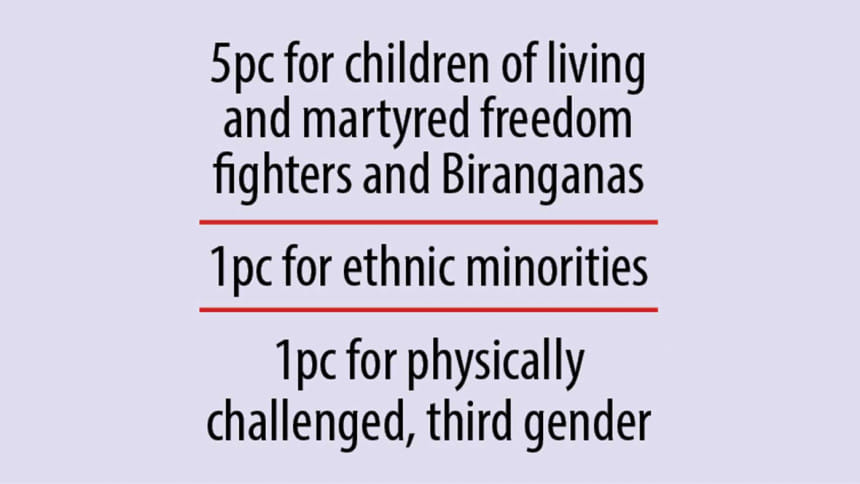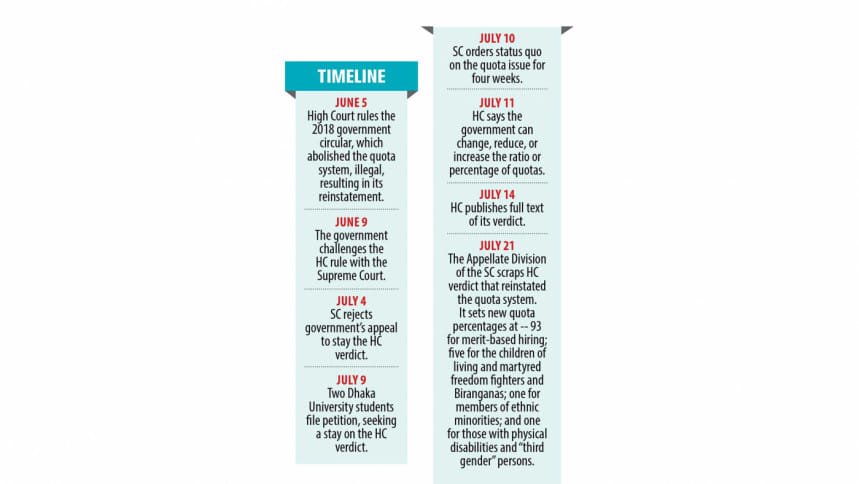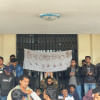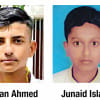SC verdict on govt jobs: 93pc on merit, 7pc from quota

The Supreme Court yesterday ordered major reforms to the quota system in jobs at government, semi-government and autonomous bodies, curtailing quotas to only seven percent from the existing 56 percent.
According to the SC order, 93 percent jobs in civil service will be merit-based.
The apex court also scrapped a High Court judgment that reinstated quotas in government jobs.
The seven-member full bench of the Appellate Division led by Chief Justice Obaidul Hassan fixed five percent quota for children of freedom fighters, martyred freedom fighters and Biranganas. One percent quota has been reserved for ethnic minorities and another one percent for persons with disability and people of third gender.
In the short verdict, the top court made no mention of the grandchildren of freedom fighters.
If qualified candidates are not available from the fixed quotas, the vacant posts will be filled from the general merit list. But despite the court order, the government may cancel, amend or reform the quota system if necessary, considering the overall situation, it said.
This has been done to "ensure the principle of equality and representation of backward section of people in the republic's jobs," the SC order said, citing articles 19, 27, 28 (4) and 29 (3) of the constitution.
The verdict comes amid violent unrest centring quota reform movement.
More than 140 people, including seven yesterday, have been killed and several thousand injured since Tuesday as law enforcers joined in by ruling Awami League men clashed with protesters in Dhaka and elsewhere. The sheer scale of the violence prompted the government to impose curfew and deploy armed forces across the country.
After 2007, when emergency was declared, this is the first time that the government deployed members of armed forces in aid to civil administration, except during elections.
"We firmly believe that the students will withdraw the quota movement after the verdict and order," said Justice Obaidul Hassan in the observation.
The court asked the students to return to their institutions immediately. It also asked the government to ensure a congenial atmosphere at educational institutions across the country.
'CIRCULAR TOMORROW'
Law Minister Anisul Huq said they will implement the judgment, and a circular in this regard is expected by tomorrow.
At present, there are 20 grades in government job, and the quota system was applicable to 13th-20th grade following a 2018 government circular, which abolished the quota system in 9th-13th grade (Class-I and Class-II) government jobs.
Contacted, Anisul Huq said yesterday's SC order will be applicable to 9th-20th grades. "There is no quota system in 1st- 8th grades of government job. So the quota in 1st-8th grades was not considerable here [in the verdict]."
But Public Administration Minister Farhad Hossain said they will analyse different angles of the court order.
"My initial understanding of the short verdict is that a new quota system will be applicable to all grades. But we will analyse different aspects and issue a clear circular by Tuesday," he told The Daily Star yesterday.
An organiser of the student movement said they consider the verdict a positive move, but they will not make any comment until the government issues a circular clearing everything up.
Another organiser in a text message to media outlets said the SC verdict was unclear and "left enough room for confusion among the public."

QUOTA PROTEST TIMELINE
In October 2018, the government through a hastily issued circular cancelled the quota system in jobs of 9th to 13th grades amid a quota reform movement at different universities.
The students never wanted its abolition, they demanded that it be revised down.
At the time, there was a 30 percent quota for freedom fighters' children and grandchildren, 10 percent for districts, 10 percent for women, five percent for ethnic minorities and one percent for physically challenged people.
The government decision to abolish the quota system was challenged in the High Court by seven children of freedom fighters. In response, the HC on June 5 declared the government circular illegal, essentially reinstating the 56 percent quota.
The HC verdict triggered a student protest on public university campuses in Dhaka and subsequently in other districts.
Students from private universities, colleges and in some cases from schools joined the movement across the country.
Protests intensified after the Supreme Court on July 4 declined to issue a stay on the HC verdict, triggering a massive one-point movement for quota reform.
After three days of nationwide movement, the SC gave a status quo on the HC verdict and set August 7 for hearing. The decision did little to pacify the protesters.
The movement turned violent after Chhatra League men attacked the agitating students on Dhaka University and some other universities on July 15.
The attack came hours after Awami League General Secretary Obaidul Quader said BCL "would give a fitting reply to those student leaders of the quota movement who labelled themselves as Razakars and were arrogant."
Violence escalated further on the following days after the killing of several students during their clashes with law enforcers and pro-government activists, who were seen attacking the students with iron pipes, rods, sticks and hockey sticks in Dhaka and elsewhere. Some of them also opened fire on the protesters in and outside the capital.
In the wake of the situation, the government requested the top court to hold an early hearing as death toll continued to rise.
THE VERDICT
Yesterday, the court sat around 10:20am amid heightened security in and outside the SC premises, with army, Rab and police personnel taking position at key points.
After dealing with two other cases, the bench started hearing the much-talked-about case with several senior lawyers seeking to place arguments on behalf of the students.
The court allocated five minutes for each after Attorney General AM Amin Uddin started his arguments seeking to scrap the HC verdict.
Then nine SC lawyers placed their arguments.
The court also heard the arguments from the counsels of the original writ petitioners as well as the two students of Dhaka University who challenged the HC verdict.
The arguments took place for around two and a half hours, and the bench took a 40-minute break before delivering the judgment at a jam-packed courtroom around 1:30pm.
The court disposed of the two leave-to-appeal petitions, saying the June 5 HC is scrapped.
The bench said although setting quota is a "policy matter of the state", they, considering the overall situation, were applying article 104 of the constitution for "complete justice."
Article 104 allows the Appellate Division to issue such directions, orders, decrees or writs for doing compete justice in any cause or matter pending before it.
The court also directed the government to issue a circular in this regard immediately.
Other six judges of the bench are Justice M Enayetur Rahim, Justice Md Ashfaqul Islam, Justice Md Abu Zafor Siddique, Justice Jahangir Hossain Selim, Justice Md Shahinur Islam and Justice Kashefa Hussain.
THE ARGUMENTS
Attorney General AM Amin Uddin and Supreme Court Bar Association (SCBA) Secretary Shah Monjurul Hoque placed arguments for the government and the two Dhaka University students who filed the leave-to-appeal petitions challenging the HC judgement.
Senior Advocate Md Munsurul Hoque Chowdhury argued for the writ petitioners who challenged the legality of the 2018 government circular.
Besides, senior lawyers Tanya Amir, Ahsanul Karim, Sara Hossain, ZI Khan Panna and Tanjib-Ul-Alam placed statements on behalf of the protesting students.
The court also heard former attorney general AF Hassan Ariff, SCBA President AM Mahbub Uddin Khokon, former SCBA President Zainul Abedin and lawyer Md Eunus Ali Akond.
The attorney general appealed for scrapping of the HC verdict.
He said the HC verdict was self-contradictory as it upheld the reservation of 30 percent quota for freedom fighters' children and at the same time said the judgement will not prevent the government from changing, reducing or increasing the quota.
It is a policy matter of the government whether to keep quota. Therefore, the HC cannot interfere in policy matters, he said.
The constitution does not permit the HC to order the government.
Advocate Shah Monjurul Hoque said the HC verdict did not discuss why it interfered in the government's policy matter, and is hence liable to be scrapped.
The HC judgement is wrong as it termed freedom fighters as "a backward section of citizens" though there is no definition of the term, he said.
Tanya Amir said freedom fighters and their children and grandchildren are not backward citizens.
Rather, they are the most respected and dignified citizens of the country, she said, adding that the writ petition, on which the HC delivered the verdict, is not maintainable.
Sara Hossain said the quota system should be reformed to eliminate discriminations.
Lawyers AF Hassan Ariff, Zainul Abedin, Mahbubub Uddin Khokon, Ahsanul Karim Tanjib-Ul-Alam, ZI Khan Panna placed their arguments in favour of scrapping the HC judgement.
Advocate Munsrul Hoque Chowdhury opposed the leave-to-appeal petitions, saying that freedom fighters and their children suffered a lot for 21 years since August 15, 1975.
There was no illegality in the HC verdict in treating them as a backward section of citizens, he said.
Chief Justice Obaidul Hassan told him that the constitution does not define "backward section" of citizens.
Mahbub Uddin Khokon said so many lives could have been saved had the government moved the leave-to-appeal petition before.
The chief justice asked him not to place any political arguments before the court.

 For all latest news, follow The Daily Star's Google News channel.
For all latest news, follow The Daily Star's Google News channel. 









Comments